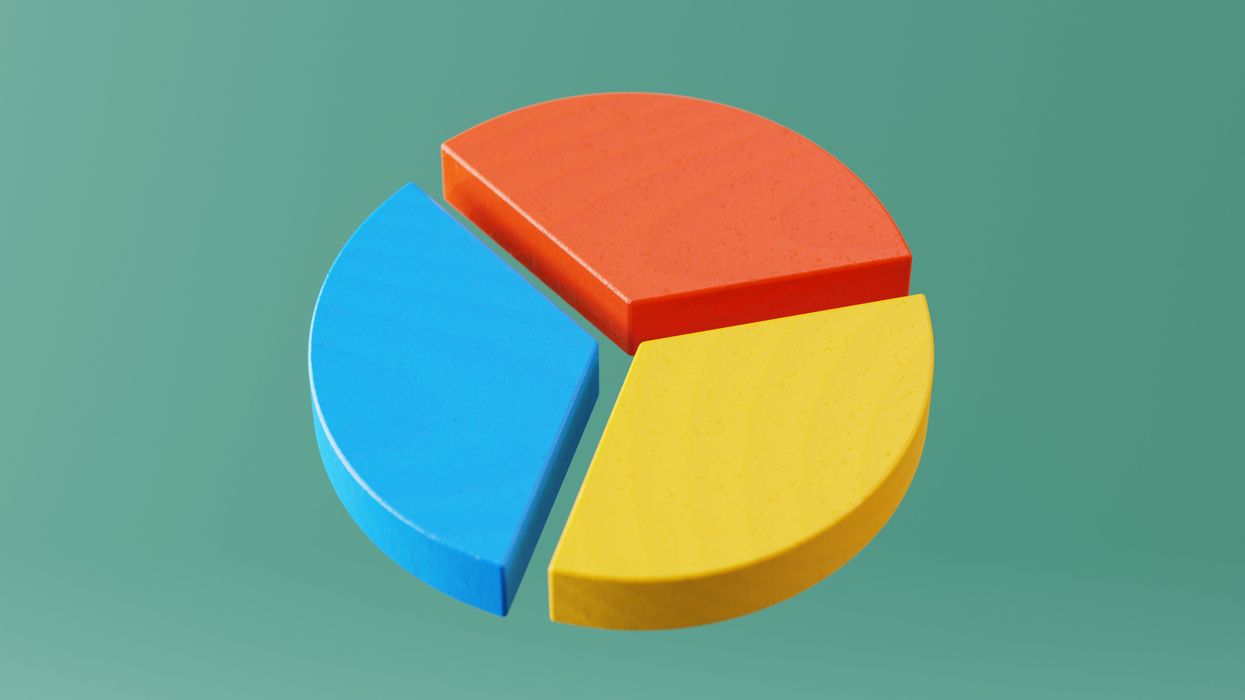Anderson edited "Leveraging: A Political, Economic and Societal Framework" (Springer, 2014), has taught at five universities and ran for the Democratic nomination for a Maryland congressional seat in 2016.
In January 2021, I wrote an op-ed for The Fulcrum that argued the term “polarized” does not describe our political dynamics because we are not split in half. It’s worth revisiting that piece today given the latest data on partisanship.
Gallup reports that 43 percent of Americans did not identify as Democrats or Republicans in the last year. I have been citing Gallup's polls on the D/R/independent split for the past three years because the statistics are so astounding.
Something does not make sense about the polarization narrative when close to half of the public say they do not identify as Democrats or Republicans. Saying you do not identify with either party is an incredibly strong statement about your political identity. A range of political scientists in recent years argue that the public is polarized, but the polarization is more about "affective polarization" than "ideological polarization." This means citizens have negative emotions about those who identify with the opposite party. They don't like them, or they hate them, or they will not socialize with them or marry them or befriend them. On the other hand, there is more common ground on policy than the media reports.
This distinction conceals the fact that almost half of the public does not self-identify as Democratic or Republican. Moreover, the fact that most of the independents "lean" toward one party rather than the other essentially confirms the reality that votes only matter if they are cast for candidates who are from one of the two parties.
The fact that America is split into three parts is related to the assumption throughout Washington and much of the country that bipartisanship is part of the meaning of democracy itself, the way having three sides is part of a triangle. Yet it is manifestly untrue that bipartisanship is essential to the concept of democracy because democratic states that have three or more political parties (including France, Germany, Israel and Australia) do not pursue bipartisanship. If they did, this would flatly deny representation to the citizens who identify with the third or fourth or fifth parties that make up their legislature, which is typically a parliament.
The sorry state of American democracy today requires a shift from a two-party system to one in which a third force is present in Washington to provide a basis for the passage of major policy bills. What is needed is a small number of independents in the House and especially the Senate, where 60 percent is needed to pass major bills. These independents, who should come from different ideological perspectives, would not caucus with either party and they would possess enormous leverage. The transformation that is needed cannot be top down by trying to elect a third-party president.
Charles Wheelan argued in “The Centrist Manifesto” for a centrist third party that would implement a "fulcrum strategy." In its place, I argue for an ideologically diverse group of independents who would implement a fulcrum strategy but who would not paint a target on its back. How independents are to get elected is a huge question. The short answer is that two things need to be done:
- We need election reform laws like open primaries, ranked-choice voting and the elimination of gerrymandering.
- Greater numbers of voters need to vote in primaries to decrease the voice of the polarized base in both parties, separate and independent from laws and regulations that would make it easier for voters to vote.
The process of transition to seeking tripartisanship will turn on a sufficient number of candidates running for office as independents and a sufficient number of donors backing those candidates in addition to various election reform laws being passed. Some of these changes can be brought about during 2024, but most will have to be worked for after November. We cannot wait till after Election Day to discuss the transformation that is needed.
The American Revolution itself was not a one- or two-year event. It lasted from 1776 to 1783, and even then the actions of 1776 were preceded by at least 10 years of colonist challenges to the British Crown. The Second American Revolution, one that requires a Declaration of Independents, will not be a one- or two-year event either. It can be done, it should be done and, if up to a third of Americans want it to be done, then it will be done.




















